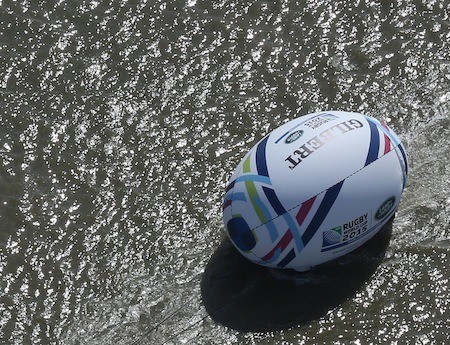‘Character’ Flaw: Watching the Rugby World Cup, or Not

The smarter way to stay on top of broadcasting and cable industry. Sign up below
You are now subscribed
Your newsletter sign-up was successful
So the United States team is facing off Wednesday against a fearsome South Africa one with something to prove in the Rugby World Cup, and I’ll be following the game—not on a giant screen TV or even a small screen one, or even the screen of my iPhone. I’ll be following the match on Twitter, because its carrier, Universal Sports, is not carried on some key cable operators, and I can’t quite stomach shelling out 28 bucks for the pay-per-view.
Universal Sports airs in 65 million households across the U.S., but not on my own Cablevision suite of channels outside New York City. It turns out I’m in Boston for a few days for a family thing, and was anticipating watching U.S. versus South Africa at my in-laws’ house, where it’s a Comcast package.
After all, Universal Sports, as the name indicates, is related to NBCUniversal, and NBCUniversal is owned by Comcast. So, naturally, Comcast carries Universal Sports.
Right?
Wrong.
“The dynamics are complicated in terms of carriage,” says Scott Brown, Universal Sports president.
Regarding Cablevision, he notes, “It’s not for a lack of trying on our part.”
The smarter way to stay on top of broadcasting and cable industry. Sign up below
The channel’s majority owner is InterMedia Partners, who has Leo Hindery as managing partner.
Brown would much prefer to talk about the distribution growth Universal Sports has added since the last time the Rugby World Cup was played, in 2011, when the only MVPD that was carrying it was DirecTV. (Remember, Universal Sports was an over-the-air multicast channel until the end of 2011.) Among others, Universal Sports inked a deal with Time Warner Cable in 2013, and, as Facebook reminds me every time I visit, the channel—and several U.S. World Cup matches—are also available on Dish’s Sling TV product.
“We’ve grown considerably,” says Brown, who acknowledges the holes in Universal Sports’ carriage are “frustrating”, and not limited to the Rugby World Cup.
At $28 a match, or $199 for the whole shebang, Brown says pay-per-view revenue in the 2015 Cup is up 150% over that in 2011.
Brown was an outside center on his college rugby team, a mix between a running back and a linebacker (rugby players play both offense and defense), and knows just how passionate the U.S. rugby community is. There are some 107,000 registered ruggers in the U.S., and many more like me, who don’t play anymore (or suit up on rare occasions with a 35-and-over “old boys” team), who follow the game, and root hard for the U.S.
“Rugby fans are very passionate about the sport,” says Brown. “They’re excited to be able to see it in the U.S.”
Many of those fans are in England these days to watch the Cup in person—seemingly half my Facebook friends. Those of us who are not so lucky to be in the U.K. these days must settle for watching the matches in the pub or at home. Or, in my case, following on Twitter.
With the so-called “elegant violence” of rugby, following via 140 characters is not the same thing.
The 2019 World Cup will be held in Japan. Brown says Universal Sports will be “very interested” in acquiring those U.S. rights. “With the success we’ve had in 2011 and 2015,” he says, “we’ll throw our hat in the ring.”
Let's hope Cablevision, and Comcast, air the channel by then.
(Photo via Land Rover MENA' Flickr. Image taken on Oct. 7, 2015 and used per Creative Commons 2.0 license. The photo was cropped to fit 3x4 aspect ratio.)
Michael Malone is content director at B+C and Multichannel News. He joined B+C in 2005 and has covered network programming, including entertainment, news and sports on broadcast, cable and streaming; and local broadcast television, including writing the "Local News Close-Up" market profiles. He also hosted the podcasts "Busted Pilot" and "Series Business." His journalism has also appeared in The New York Times, The L.A. Times, The Boston Globe and New York magazine.

